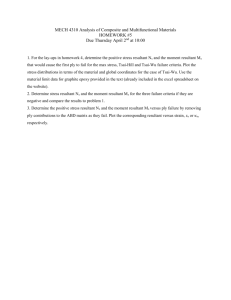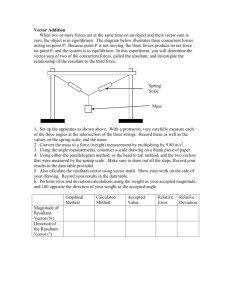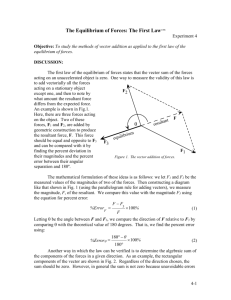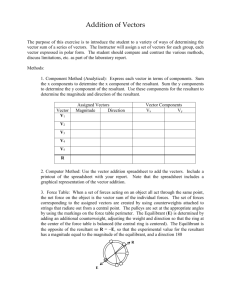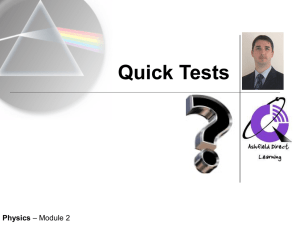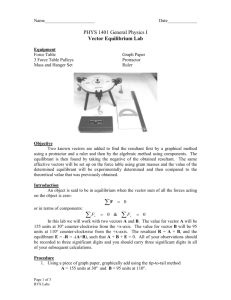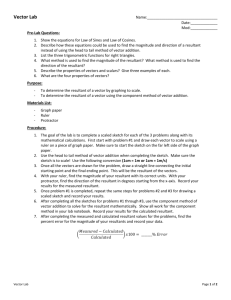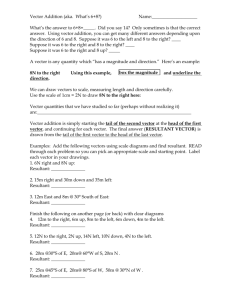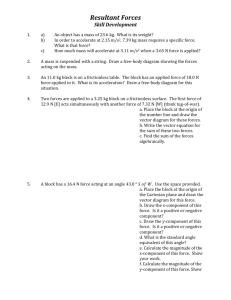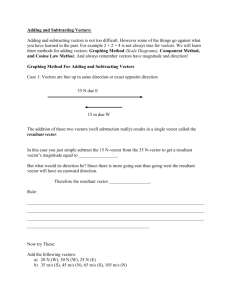Resultant of Concurrent Forces: Mechanics Review & Problems
advertisement
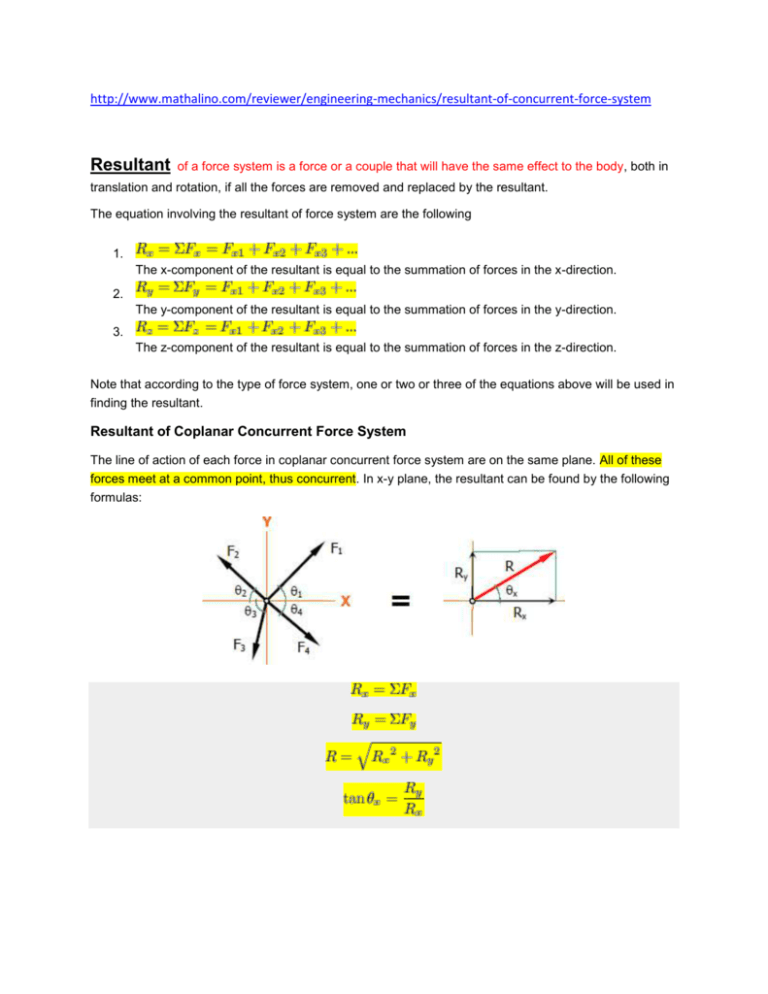
http://www.mathalino.com/reviewer/engineering-mechanics/resultant-of-concurrent-force-system Resultant of a force system is a force or a couple that will have the same effect to the body, both in translation and rotation, if all the forces are removed and replaced by the resultant. The equation involving the resultant of force system are the following 1. The x-component of the resultant is equal to the summation of forces in the x-direction. 2. The y-component of the resultant is equal to the summation of forces in the y-direction. 3. The z-component of the resultant is equal to the summation of forces in the z-direction. Note that according to the type of force system, one or two or three of the equations above will be used in finding the resultant. Resultant of Coplanar Concurrent Force System The line of action of each force in coplanar concurrent force system are on the same plane. All of these forces meet at a common point, thus concurrent. In x-y plane, the resultant can be found by the following formulas: Resultant of Spatial Concurrent Force System Spatial concurrent forces (forces in 3-dimensional space) meet at a common point but do not lie in a single plane. The resultant can be found as follows: Direction Cosines Vector Notation of the Resultant Where http://www.mathalino.com/reviewer/engineering-mechanics/012-resultant-two-velocity-vectors Problem 012 Find the resultant vector of vectors A and B shown in Fig. P-012. Solution 012: Component Method The resultant vector R = 41.39 m/sec downward to the right at θ x = 72.70°. Another Solution: Vector Method (ok!) downward to the right (ok!) Another Solution: Geometry Method Cosine Law for the shaded triangle (ok!) By Sine Law (ok!) http://www.mathalino.com/reviewer/engineering-mechanics/013-resultant-three-forces-anglesgreater-90-degree Problem 013 Three vectors A, B, and C are shown in the figure below. Find one vector (magnitude and direction) that will have the same effect as the three vectors shown in Fig. P-013 below. Solution 013 answer http://www.mathalino.com/reviewer/engineering-mechanics/014-solving-force-given-resultant Problem 014 From Fig. P-014, P is directed at an angle α from x-axis and the 200 N force is acting at a slope of 5 vertical to 12 horizontal. a. Find P and α if the resultant is 500 N to the right along the x-axis. b. Find P and α if the resultant is 500 N upward to the right with a slope c. of 3 horizontal to 4 vertical. Find P and α if the resultant is zero. Solution 014 Part a: The resultant is 500N to the right along the x-axis By Cosine law of the shaded triangle answer By Sine law answer Part b: The resultant is 500 N upward to the right with a slope of 3 horizontal to 4 vertical answer answer Part c: The resultant is zero The resultant is zero if P and the 200 N force are equal in magnitude, oppositely directed, and collinear. Thus, P = 200 N at α = 157.38° answer http://www.mathalino.com/reviewer/engineering-mechanics/015-solving-force-and-its-angle-and-angletwo-forces-given-resultant Problem 015 Forces F, P, and T are concurrent and acting in the direction as shown in Fig. P-015. a. Find the value of F and α if T = 450 N, P = 250 N, β = 30°, and the resultant is 300 N acting up along the y-axis. b. Find the value of F and α if T = 450 N, P = 250 N, β = 30° and the resultant is zero. c. Find the value of α and β if T = 450 N, P = 250 N, F = 350 N, and the resultant is zero. Solution 015 Part a: Unknown force and direction with non-zero resultant and answer answer Part b: Unknown force and direction with zero resultant and answer answer Part c: Unknown direction of two forces with zero resultant and → Equation (1) → Equation (2) Equation (1) + Equation (2) answer From Equation (1) answer
